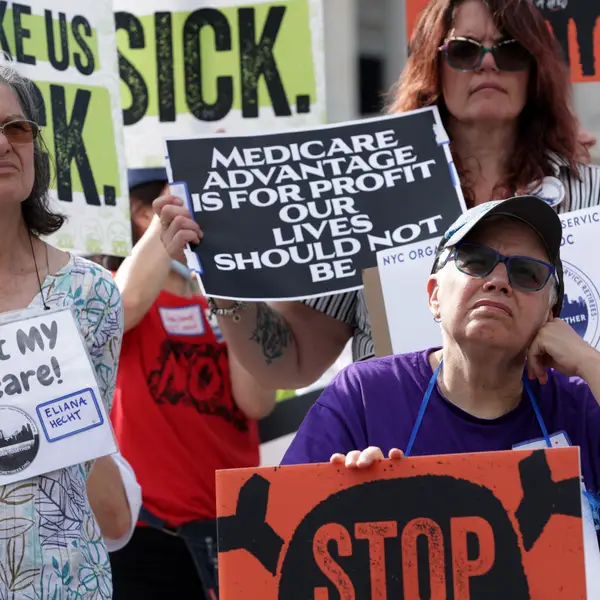Bad enough that the Republican Senate bill would repeal much of the Affordable Care Act.
Even worse, it unravels the Medicaid Act of 1965 - which, even before Obamacare, provided health insurance to millions of poor households and elderly.
It's done with a sleight-of-hand intended to elude not only the public but also the Congressional Budget Office.
Here's how the Senate Republican bill does it. The bill sets a per-person cap on Medicaid spending in each state. That cap looks innocent enough because it rises every year with inflation.
But there's a catch. Starting 8 years from now, in 2025, the Senate bill switches its measure of inflation - from how rapidly medical costs are rising, to how rapidly overall costs in the economy are rising.
Yet medical costs are rising faster than overall costs. They'll almost surely continue to do so - as America's elderly population grows, and as new medical devices, technologies, and drugs prolong life.
Which means that after 2025, Medicaid will cover less and less of the costs of health care for the poor and elderly.
Over time, that gap becomes huge. The nonpartisan Urban Institute estimates that just between 2025 and 2035, about $467 billion less will be spent on Medicaid than would be spent than if Medicaid funding were to keep up with the expected rise in medical costs.
So millions of Americans will lose the Medicaid coverage they would have received under the 1965 Medicaid act. Over the long term, Medicaid will unravel.
Will anyone in future years know Medicaid's unraveling began with this Senate Republican bill ostensibly designed to repeal and replace the Affordable Care Act? Probably not. The unraveling will occur gradually.
Will future voters hold Republicans responsible? Again, unlikely. The effects of the unraveling won't become noticeable until most current Republican senators are long past reelection.
Does anyone now know this time bomb is buried in this bill?
It doesn't seem so. McConnell won't even hold hearings on it.
Next week the Congressional Budget Office will publish its analysis of the bill. CBO reports on major bills like this are widely disseminated in the media. The CBO's belated conclusion that the House's bill to repeal and replace the Affordable Care Act would cause 23 million Americans to lose their health care prompted even Donald Trump to call it "mean, mean, mean."
But because the CBO's estimates of the consequences of bills are typically limited to 10 years (in this case, 2018 to 2028), the CBO's analysis of the Senate Republican bill will dramatically underestimate how many people will be knocked off Medicaid over the long term.
Which is exactly what Mitch McConnell has planned. This way, the public won't be tipped off to the Medicaid unraveling hidden inside the bill.
For years, Republicans have been looking for ways to undermine America's three core social insurance programs - Medicaid, Medicare, and Social Security. The three constitute the major legacies of the Democrats, of Franklin D. Roosevelt and Lyndon Johnson. All continue to be immensely popular.
Now, McConnell and his Senate Republican colleagues think they've found a way to unravel Medicaid without anyone noticing.
Don't be fooled. Spread the word.




